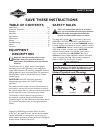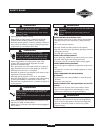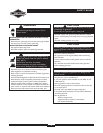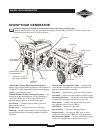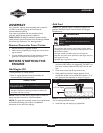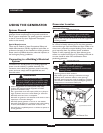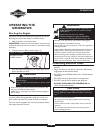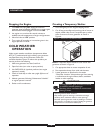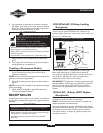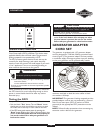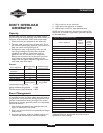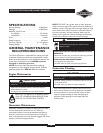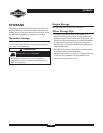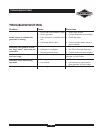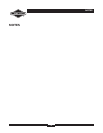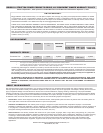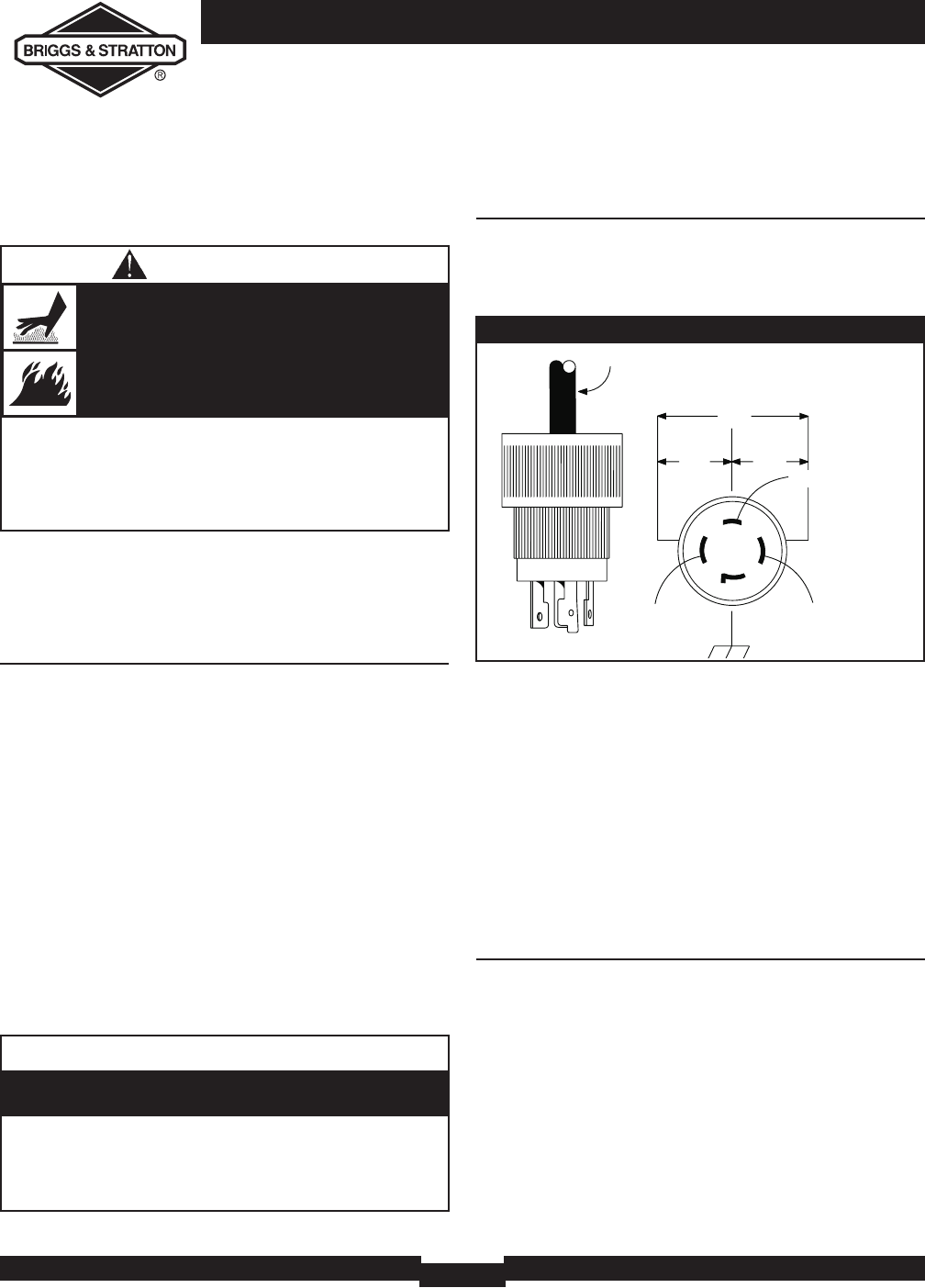
OPERATION
10
6. Start generator as described in the section “Starting
the Engine”, then place carton over generator. Keep at
least 5 ft. (152 cm) clearance on all sides of generator
including overhead with shelter in place.
7. Remove shelter when temperatures are above 40°F
[4°C].
8. Turn engine OFF and let cool two (2) minutes before
refueling.Wipe up any spilled fuel.
Creating a Permanent Shelter
1. Build a structure that will enclose three sides and the
top of the generator, making sure muffler side of
generator is exposed.
NOTE: Structure should hold enough heat created by the
generator to prevent icing problem.
2. DO NOT enclose generator any more than shown in
Figure 4.
NOTE: If a wheel kit is installed on the generator, enlarge
shelter accordingly.
3. Follow steps 3 through 8 as described previously in
“Creating a Temporary Shelter”.
RECEPTACLES
A double pole rocker switch circuit breaker is provided to
protect all the receptacles and generator against electrical
overload.
120/240 Volt AC, 20 Amp Locking
Receptacle
Use a NEMA L14-20 plug with this receptacle. Connect a
4-wire cord set rated for 250 Volts AC at 20 Amps (or
greater) (Figure 5).You can use the same 4-wire cord if you
plan to run a 120 Volt load.
This receptacle powers 120/240 Volt AC, 60 Hz, single
phase loads requiring up to 2,000 watts of power at
16.6 Amps for 120 Volts; 4,000 watts of power (4.0 kW) at
16.6 Amps for 240 Volts.The outlet is protected by a
double pole rocker switch circuit breaker.
IMPORTANT: This generator’s locking receptacle and the
provided adapter cord set are not protected by a Ground
Fault Circuit Interrupter (GFCI). If used on an OSHA
governed job site, appropriate GFCI protection must be
utilized.
120 Volt AC, 15 Amp, GFCI Duplex
Receptacles
Each duplex receptacle (Figure 6) is protected against
overload by a push–to–reset circuit breaker.
NOTE: If the double pole circuit breaker is tripped, the
duplex receptacles are disconnected.
Use each receptacle to operate 120 Volt AC, single–phase,
60 Hz electrical loads requiring up to 1,800 watts (1.8 kW)
at 15 Amps of current. Use cord sets that are rated for
125 Volt AC loads at 15 Amps (or greater). Inspect cord
sets before each use.
• NEVER attempt to power a device requiring more amperage
than generator or receptacle can supply.
• DO NOT overload the generator. See “Don’t Overload
Generator”.
Receptacles may be marked with rating value greater
than generator output capacity.
CAUTION
Figure 5 — 120/240 Volt AC, 20 Amp Receptacle
4-Wire Cord Set
240V
120V
120V
W (Neutral)
X (Hot)
Y (Hot)
NEMA L14-20
Ground (Green)
• DO NOT touch hot surfaces and avoid hot exhaust gases.
• Allow equipment to cool before touching.
• Keep at least 5 ft. (152 cm) clearance on all sides of generator
including overhead.
• Remove shelter when temperatures are above 40°F [4°C].
Running engines produce heat.Temperature of
muffler and nearby areas can reach or exceed
150°F (65°C).
Severe burns can occur on contact.
Exhaust heat/gases can ignite combustibles,
structures or damage fuel tank causing a fire.
WARNING



